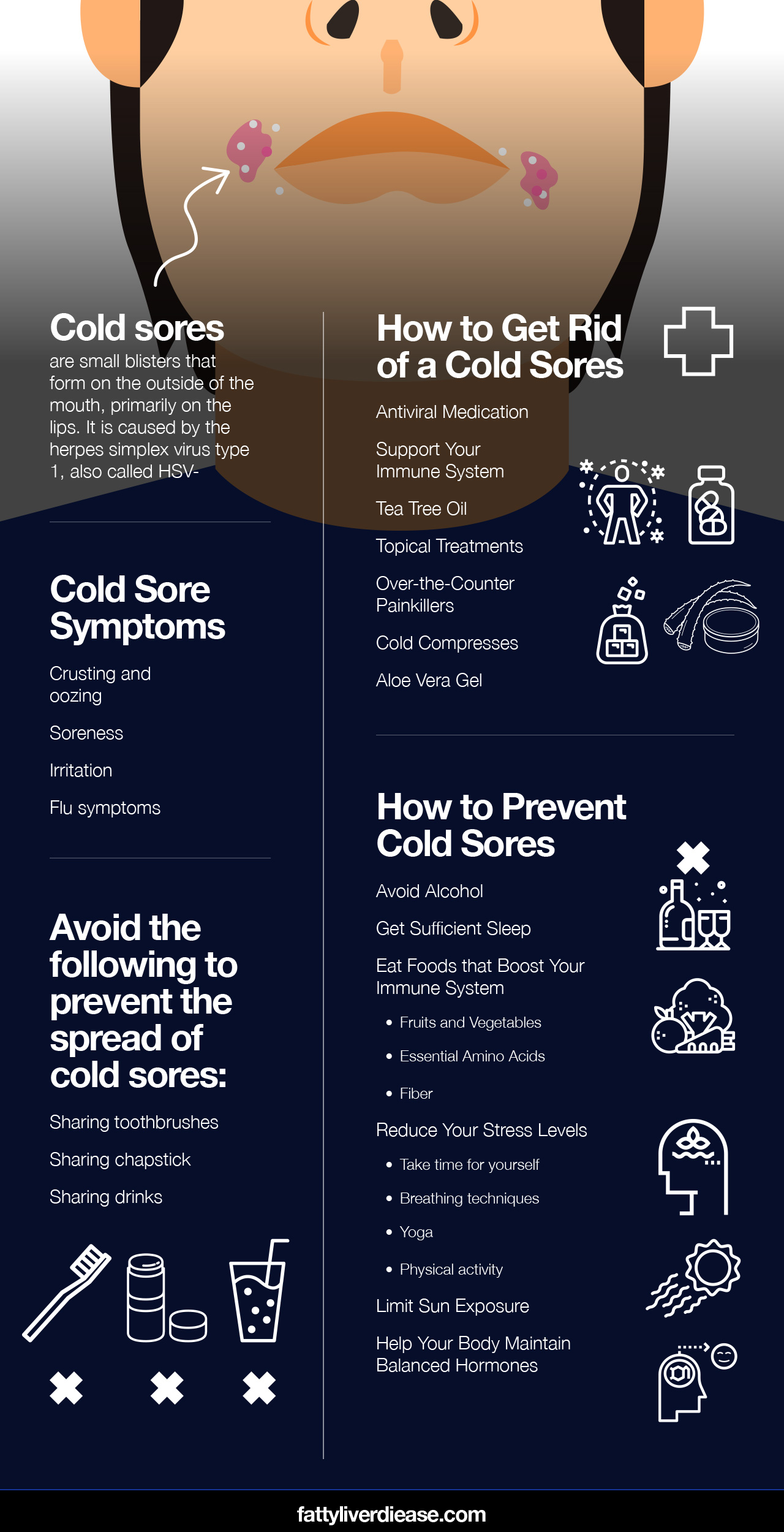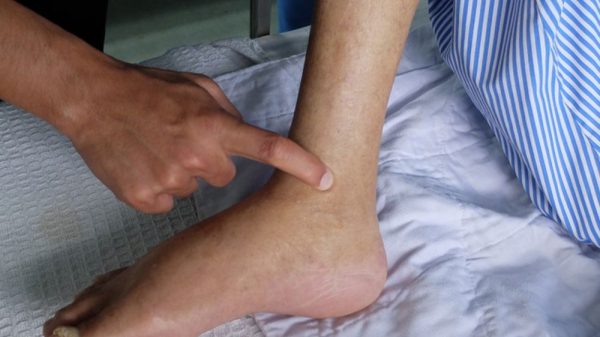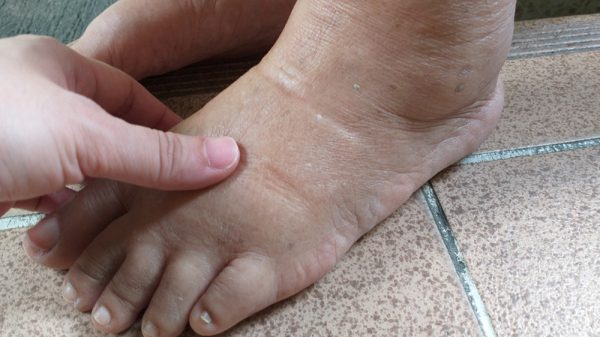If you have cold sores, you know the drill: a seemingly innocent tingly spot on your lip soon turns into a gnarly blister that oozes and causes a great deal of discomfort. What are these nasty things, why do we get them, and most importantly, how do you get rid of them?!
If you struggle with cold sores, rest assured that you’ve come to the right place. Read on to find out more about how to get rid of a cold sore and how to reduce the frequency of cold sore breakouts.
What Are Cold Sores, Anyways?
Cold sores are small blisters that form on the outside of the mouth, primarily on the lips. Cold sores are all caused by the herpes simplex virus type 1, also called HSV-1. By adulthood, most people have been exposed to the cold sore virus, though only about a third of all people with the virus will get cold sores. The remainder of individuals will harbor a dormant form of the virus that essentially remains in hibernation without causing any symptoms.
It’s also helpful to understand what cold sores are NOT. Though cold sores are caused by a herpes virus, they are not the same as genital herpes, which is caused by the herpes simplex virus type 2 (HSV-2). However, keep in mind that a person with an active outbreak of HSV-1 may transmit the cold sore virus to the genital area of another person via oral sex.
Cold sores are also not the same as canker sores. While cold sores are contagious and caused by a viral infection, canker sores are not contagious and are small bacterial ulcers that develop inside the mouth.
Symptoms of a Cold Sore Outbreak
If you’ve had cold sores for a long time, then you are probably used to the symptoms. However, if cold sores are new to you, it might be helpful to go over the specific symptoms of cold sores.
Prior to an outbreak, you will likely know when cold sores are coming on before they actually develop. The first sign of an oncoming cold sore is a spot on your lip that many people describe as a tingle or burning sensation. After a day or two, this tingly spot erupts into a large blister or a few small blisters. These blisters persist until they turn into scabs and heal.
Here are some other examples of cold sore symptoms:
- Crusting and oozing: As the blisters progress, they may ooze and
- Soreness: Pain and soreness are common in the area of the blisters.
- Irritation: Redness, inflammation, dryness, and flaking of the lips is common with cold sores.
- Flu symptoms: Though rare, some people may experience fever and chills along with cold sores.
How Are Cold Sores Contagious?
You can catch cold sores from someone who has an active outbreak. Though the most likely transmission of a cold sore happens when the sore is actually present, it is also possible to transmit the HSV-1 virus before the cold sore shows up.
Here are a few of the most common ways cold sores spread:
- Sharing toothbrushes: Toothbrushes come into close contact with the lips and can easily be a vehicle for transmitting viral particles from one person to another.
- Sharing chapstick: Chapstick is applied directly to your lips and therefore comes in direct contact with potential viral particles.
- Sharing drinks: The rim of the glass can easily come in contact with viral particles that can then easily be transmitted to another person.
The best way to prevent the spread of cold sores is by limiting close contact during an active outbreak.
How to Get Rid of Cold Sores
If you have a cold sore outbreak, you are not resigned to dealing with the cold sore until it resolves on its own. Though the cold sore will absolutely heal on its own, there are thankfully some cold sore remedies that can help shorten the duration of the healing process. Here are some tips for how to get rid of a cold sore fast.
If you are prone to cold sores, it’s helpful to have some strategies up your sleeve for handling them and helping them clear up quickly.
1. Antiviral Medication
Antiviral medication is one of the most effective methods for getting rid of a cold sore as quickly as possible. All kinds of antiviral medication – like famciclovir (brand name Famvir), penciclovir, and valacyclovir (Valtrex) – are prescription medications, meaning that they require a doctor’s order. If you are prone to cold sores, ask your physician about your options for antiviral prescriptions. Depending on your specific case, it might even make sense for your physician to prescribe a course of Valtrex to keep on hand in case you feel a cold sore coming on. However, your doctor will be able to assess your case and make that judgment.
How do antiviral medications work? These medications are effective because they inhibit viruses from infecting other cells, therefore dampening the effects of the virus. To stave off cold sores as quickly as possible, it’s best to take antiviral medication as soon as you feel the first symptom of a cold sore. This way, the medication has the best chance of beating off the virus before it takes hold and forms a cold sore. For example, as soon as you feel a tingling spot on your lip, go ahead and take your anti-viral medication. Always follow your physician’s guidance regarding how much and when to take your medication.
2. Support Your Immune System
Like the common cold, cold sores are viruses. Even though cold sores aren’t typically accompanied by other symptoms, a cold sore is a virus nonetheless. What do you do when you have the common cold? Maybe you take it easy, sleep more than usual, relax, drink some tea, and take vitamin C. The same strategies also work for getting rid of cold sores. Simply supporting your body as it fends off a cold sore will help fortify the immune system.
3. Tea Tree Oil
Research shows that tea tree oil exhibits antimicrobial properties and fights against not only viral particles but also bacteria and fungi. (1)
To use tea tree oil for cold sores, first dilute a drop of tea tree oil with 10-15 drops of water. Using a cotton swab, gently dab the diluted tea tree oil onto your cold sore.
4. Topical Treatments
Topical creams can be purchased at your local drugstore pharmacy. Abreva is an example of an over-the-counter antiviral cream that reduces the reproduction of the HSV-1 virus, which can help your cold sores heal more quickly.
5. Over-the-Counter Painkillers
Pain relievers like ibuprofen and acetaminophen can help reduce the irritation and inflammation associated with fever blisters. Though Advil and Tylenol won’t directly reduce the viral load of the cold sore, they will help manage symptoms, which can help the cold sore heal more quickly.
6. Cold Compresses
Applying cold compresses to your cold sore may help manage both the irritation, redness, and pain. However, avoid applying ice directly to your cold sore since this can cause even more irritation. Instead, protect the ice with a paper towel and cold it on the cold sore for a few minutes at a time.
7. Aloe Vera Gel
Aloe vera gel is a popular home remedy for sunburns and other skin ailments. But did you know that aloe vera gel may also be effective for fighting cold sores and associated symptoms? A study conducted by researchers at the Shiraz University of Medical Sciences in Iran found that aloe vera may hamper the activity of the cold sore virus. (2)
The best way to use aloe vera for your cold sores is by applying the gel directly to your cold sore.
How to Prevent Cold Sores
If you get cold sores, you are probably also curious about ways to prevent them. Though there is no way to prevent an outbreak for sure, knowing your triggers and taking certain precautions can help reduce the frequency of outbreaks.
1. Avoid Alcohol
Alcohol is known to suppress immune system activity. When the immune system is suppressed, this increases the likelihood that the virus will activate and cause a cold sore. Though a couple of drinks are likely fine, don’t go over the limit. A hangover can leave you not only with a pounding headache but also an impending cold sore.
2. Get Sufficient Sleep
The amount of sleep you get can also determine whether you will get a cold sore. Sleep deprivation can weaken your immune system and make it harder for your body to prevent a cold sore outbreak. The HSV-1 virus will take advantage of this situation and create a nasty cold sore.
3. Eat Foods that Boost Your Immune System
Did you know eating healthy foods can boost your immune system, reduce oxidative stress and inflammation, and help prevent cold sore outbreaks? Strengthening your immune system helps keep the HSV-1 virus dormant within the body, fighting active viruses before an outbreak arises. Here are the foods you should eat if you want to help reduce the frequency of cold sore outbreaks.
Fruits and Vegetables
Eating lots of fruits and vegetables on a daily basis helps to fortify your immune system by reducing inflammation and oxidative stress. In particular, fruits and veggies are packed with protective and healing compounds called antioxidants. Antioxidants are responsible for fighting oxidative stress, which is a term that describes the buildup of damaging free radicals in cells. Though a degree of oxidative stress is normal as a result of daily wear and tear on the body, too much oxidative stress can cause an inflammatory response. Chronic inflammation leaves you more vulnerable to developing non-communicable diseases as well as developing symptomatic infections as a result of viruses and bacteria. Antioxidants effectively neutralize free radicals and decrease the level of oxidative stress throughout the body. Subsequently, inflammation levels in the body decrease. With an immune system that is well-equipped, your body can more effectively fight cold sore outbreaks before they begin. To incorporate more fruits and veggies into your diet, reach for foods like blueberries, raspberries, blackberries, strawberries, oranges, watermelon, kale, broccoli, and sweet potato.
Essential Amino Acids
Amino acids are often described as the building blocks of protein. This Is because amino acids are the smallest individual components that make up protein, and they are strung together in structures that fit each individual protein’s function. The human body requires amino acids for a variety of processes, such as synthesizing muscle tissue, neurotransmitters, hormones, and enzymes. Essential amino acids are particularly important because, unlike other amino acids that can be produced by the body, they must be obtained through dietary protein sources.
Getting optimal ratios of essential amino acids is particularly important to ensure that all biological processes are as effective as possible. There is evidence that a particular amino acid – lysine – can help prevent the reproduction of HSV-1 by blocking the role of arginine in viral reproduction. Having fewer viral particles decreases the likelihood that you will develop a cold sore outbreak.
Keep in mind that you don’t want to get only lysine in your diet. Instead, lysine should be a part of a complete profile of essential amino acids. Animal products offer balanced ratios of amino acids in each dietary source. If you are an omnivore, reach for foods like chicken breast, turkey breast, low-fat yogurt, low-fat cheese, egg whites, and fish. If you are a vegetarian, you can still ensure that you’re getting all of the necessary essential acids in your diet. Just be sure to eat a balance of vegetable proteins each day, including nuts, seeds, beans, whole grains, and tofu products.
Fiber
Though fiber is well-known for its ability to get your sometimes overlooked as a potent anti-inflammatory agent. When we consume fiber, the body passes much of it through the digestive tract unaltered. Good bacteria in the microbiome feed on fiber and produce anti-inflammatory compounds as byproducts. These compounds then are absorbed into the bloodstream and travel throughout the body reducing oxidative stress and inflammation. To help decrease the frequency of cold sore outbreaks, increase the fiber content of your diet. You can add more fiber to your diet by eating any whole, plant-based food. For example, whole grains, beans, nuts, seeds, fruits, and veggies are packed with fiber.
4. Reduce Your Stress Levels
Did you know that stress can precipitate a cold sore outbreak? Both physical and psychological stress can trigger oxidative stress and inflammation. The link between mental stress and physical health proves that the mind and body are deeply connected. Stress has a profound effect on physiology and causes are cells to produce more free radicals than usual. Taking proactive steps to lower stress levels can help strengthen your immune system, allowing it to operate more efficiently and ward off those pesky cold sores. Here are a few ways you can manage your stress, and subsequently help prevent a cold sore outbreak.
- Take time for yourself: In today’s busy world, it’s so easy to be overwhelmed by responsibilities and to-do lists, that we forget to take a few minutes to check in with ourselves. Even if you can only spare 10 minutes, spending this time each day for yourself can help you re-center, soothe emotions, and reduce stress levels.
- Breathing techniques: Though this may sound simple, breathing techniques are very important for addressing the physiological effects of stress. When we get stressed, adrenaline causes our breathing and heart rate to pick up, and we might sweat and shake. These symptoms mean that your cells are in overdrive and producing lots of reactive free radicals. By taking deep breaths and slowing your breathing, you can almost immediately bring your physical state down to baseline.
- Yoga: Yoga is known to be a very relaxing, centering activity. When you are holding yoga poses, you are forced to focus on your body’s position in the present moment. This takes your mind off of other anxieties and allows your mind to focus on the task at hand.
- Physical activity: Moderate physical activity can help release stress and tension, which supports your immune system. Physical activity also promotes your overall health.
5. Limit Sun Exposure
For some people, sun exposure is irritating and triggers a cold sore outbreak. If you notice that your cold sores are correlated with sun exposure, it will be especially helpful to limit sun exposure. To protect your lips from sunlight, make sure to apply sunscreen to the area around your mouth. In addition, use a lip balm with an SPF of at least 15.
6. Help Your Body Maintain Balanced Hormones
Hormonal changes are a common trigger for cold sore outbreaks. For example, women may experience cold sore outbreaks around menstruation. If you are prone to hormone-related cold sores, aim to eat a balanced diet and cut out foods like added sugars, refined grains, and saturated fats that tend to worsen hormone fluctuations and imbalances. It’s also a good idea to talk to your doctor about strategies for balancing your hormones.
When to Visit a Doctor
If you have never had cold sores, you may just want to visit your doctor for confirmation that the blister on your lip is indeed a cold sore. Additionally, your doctor will be able to present treatment options and prescribe antiviral creams and medications.
It is also a good idea to visit your doctor if you have very frequent cold sores or if your outbreaks last longer than a couple of weeks. Your physician will be able to investigate why your cold sores are happening so frequently and determine if there is an underlying cause.
If you think you may have HSV-1 in your genital area, visit your doctor when you notice that a blister has developed. Your physician can swab the blister and test it for the virus.
How to Get Rid of a Cold Sore: Conclusion
Cold sores are notoriously painful and irritating and can arise at the least opportune times. Thankfully, there are remedies to help get rid of a cold sore by both shortening its duration and ameliorating symptoms. Prescription antiviral drugs, topical creams, cold compresses, and aloe vera gel can help heal a cold sore. You can effectively decrease the frequency of cold sore outbreaks by eating a balanced diet and avoiding triggers.

References:























